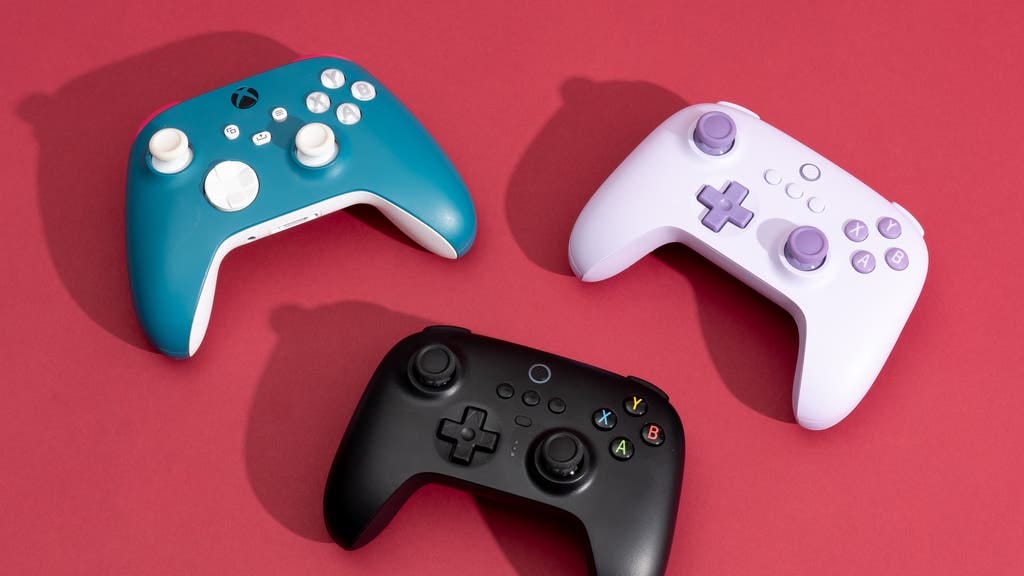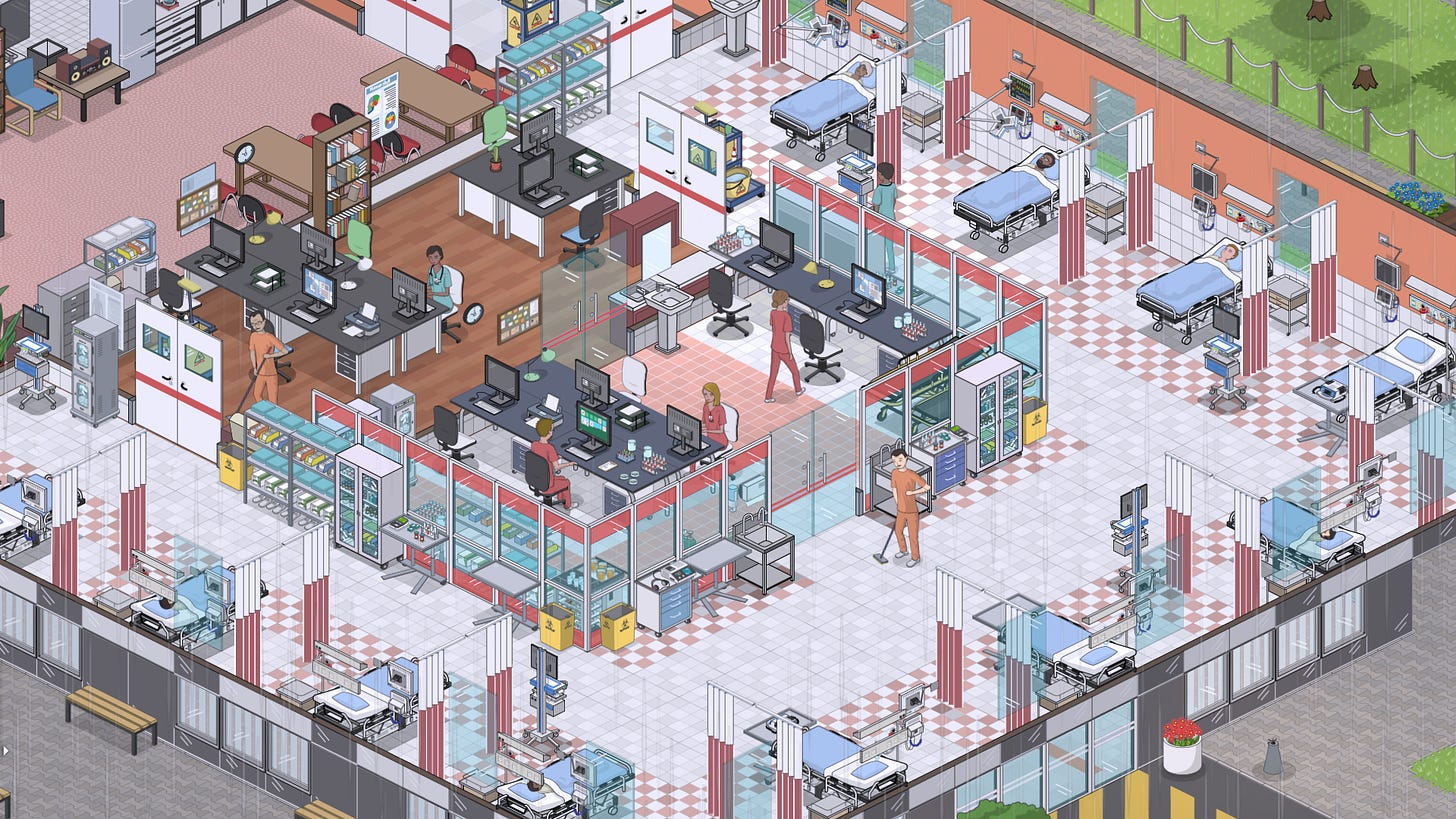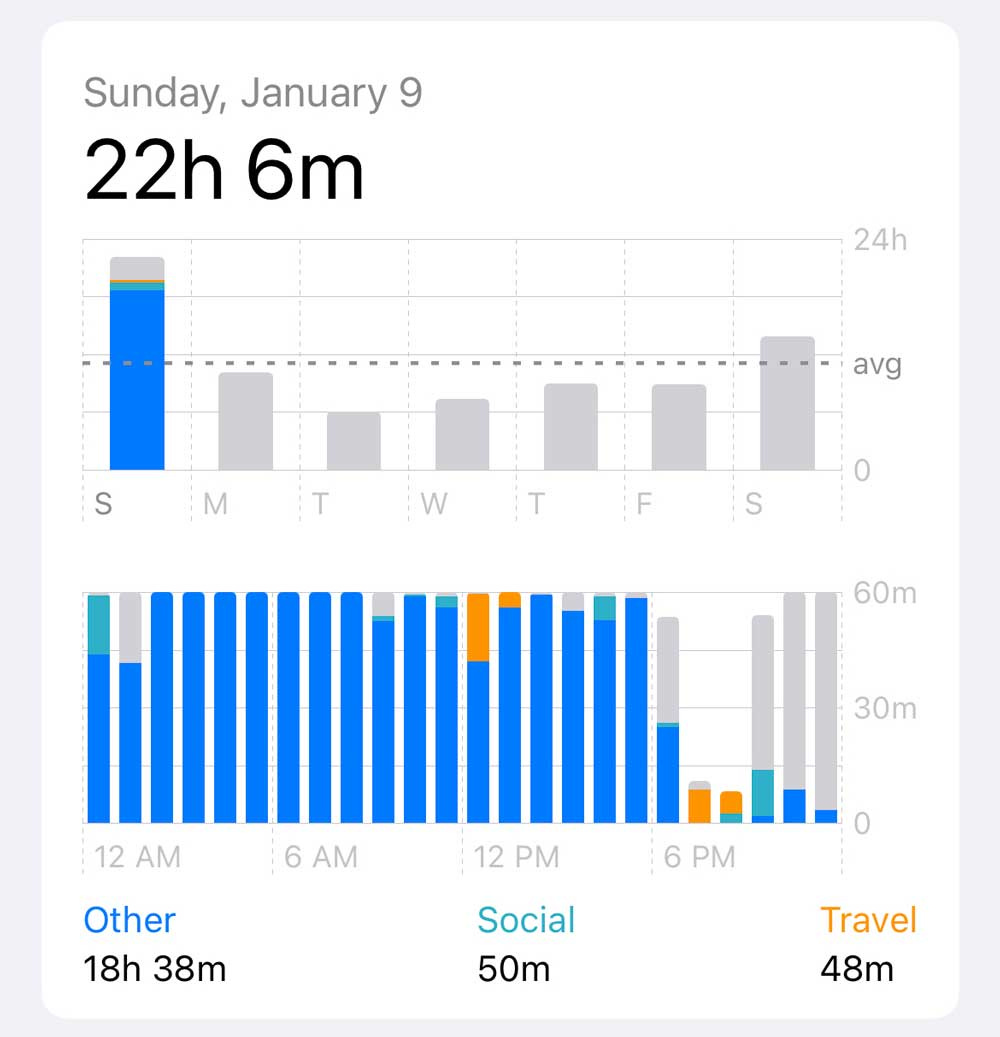Science Shorts: Video games in research (Oct. 2024)
Issue #2 has shoes, emergency departments, and mental health
Hello JOMT Reader!
I started the Science Shorts issues of JOMT to share some of the games-related research happening around the world. Sharing is the focus of this issue, so it only makes sense to use this space to share some of the other writers on Substack.
This week, I want to highlight
written by . Each week, Alex provides a recap of articles written for the companion site, Reconnect. It’s the GameStack we’ve all been talking about, a platform to discover great writing across the internet!
TL;DR
Being poked and prodded by healthcare professionals sucks. But these researchers developed a way to assess nervous system abnormalities using a game controller for your feet.
Imagine playing Project Hospital and getting good at being a doctor in an emergency department! These researchers developed a game that simulates patients in an emergency department, providing a risk-free space for students to learn.
Screen time continues to be a big topic of conversation, especially for parents of young children. A large study of over 9500 participants showed strong associations between screen time and certain mental health symptoms.
Game controllers to diagnose diseases
Link to article: https://www.jmir.org/2024/1/e52323
Title: Game-Based Assessment of Peripheral Neuropathy Combining Sensor-Equipped Insoles, Video Games, and AI: Proof-of-Concept Study
Could you imagine playing a first-person horror game where your aim was affected by how sweaty your palms were or how fast your heart was beating? These kinds of technologies can pave the way for the next revolution in interactive gaming and entertainment.
But they have uses beyond entertainment. Being able to measure things about our bodies while we play games has huge advantages over traditional methods of measurement, including lowering the barrier to being measured in the first place. Researchers in Germany tackled this challenge and developed a game controlled by a pair of specialized shoes. These shoes measure the pressure applied to their soles, allowing researchers to see if there was something wrong with the nervous system in the legs.
In about 75% of cases, the researchers were able to accurately detect abnormalities in the nervous system. They were also able to classify the type of abnormality based on the measurements they took with the pair of shoes.
Although the small number of participants in the study is a big limitation, it’s a promising start to find better ways to detect and diagnose health conditions. At the very least, technologies like this provide a way to quantify the symptoms associated with a disease.
Using simulation games for training
Link to article: https://bmcmededuc.biomedcentral.com/articles/10.1186/s12909-024-06056-z
Title: Development and evaluation of an emergency department serious game for undergraduate medical students
Mistakes are the bedrock for all of our learned lessons. But in some cases, those mistakes can cost a life. Especially if you’re holding lives in the palm of the decisions you make.
So how do we make mistakes without risking lives? Simulation games are an easy, fun, and risk-free way to test your decision-making prowess in all sorts of situations, including high-stress situations like the emergency department (ER) of a hospital. The researchers of this study created a game that simulates patients in the ER and asked participants to treat them properly.
All of the patients were dynamically generated and came with information about their symptoms. Participants were allowed to ask the virtual patient more questions, which was powered by a chatbot. They were then asked to choose an appropriate action for the patient.
Unfortunately, factors like the user interface got in the way of participants truly appreciating the game. But, the researchers have already started on more rounds of development with feedback from the player base. Hopefully, this means that we’ll see an even better version of this game soon as a training tool for aspiring doctors!
(If you want a good game to play doctor and manage a hospital at the same time, I highly recommend Project Hospital [Steam link] — a really good hospital management and doctor simulation game.)
A B C D
Link to article: https://bmcpublichealth.biomedcentral.com/articles/10.1186/s12889-024-20102-x/
Title: Screen time and mental health: a prospective analysis of the Adolescent Brain Cognitive Development (ABCD) Study
We live in a world surrounded by screens, the effects of which are still being debated today. As a parent, I’m most worried about how screen time affects the development of my children. Unfortunately, most studies trying to answer this question are small, making it hard to draw meaningful conclusions.
So I was excited to learn about the Adolescent Brain Cognitive Development (ABCD) Study, a massive research project that analyzed over 9500 participants. Their goal was to see if they could find links between mental health symptoms and screen time.
Perhaps not surprisingly, mental health symptoms linked to depression and attention-deficit/hyperactivity were weakly associated with longer screen time. The type of screen time seemed to matter too: video chat, texting, videos, and video games, but not social media use, were associated with symptoms of depression.
There’s one big issue with the ABCD Study. Because of the way the study was conducted, all it shows are links between screen time and mental health symptoms. It doesn’t mean that screen time leads to mental health issues. Given that some people play games to escape reality, it is entirely possible that people with mental health symptoms are more heavily represented in the gamer population. It’s also important to note that the associations between screen time and mental health symptoms were weak. Many other factors (like socioeconomic status or cultural upbringing) contribute to mental health issues, making it hard to single out screen time as the culprit.
If you liked what you read, please consider giving this post a like and sharing it with your community! Would you use a games-based training tool or diagnostic test? Let me know in the comments below!







The idea of using game feedbacks systems for diagnosis is great. Not only would it be very useful for kids but it might mean much cheaper diagnostic equipment.
The study on screen time is interesting. But I think we're asking the wrong question. If someone watched TV for 8 hours a day, we'd agree that's not good for development. Surely, abundant screen time is similar. Do we really need research to confirm it's not the healthiest of habits?
Oh man a horror game where it can sense the sweat of your hands. Maybe if it can sense voice as well like when it hears you’re passing the controller to a friend. Game changed